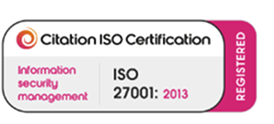The world of search – July 2014
July has been a very quiet month for some search engines but Google have been busy enough to give us some interesting stories this month.
Pigeon update
The first, and possibly most important to us SEO folks, is that Google have released an new algorithm for local search results. It the moment it is limited to US English search results and has no name. However the SEO community have nicknamed it Pigeon for the time being.
Google have said that the aim is to improve their distance and location parameters and the changes will be visible on Google maps and Google search results. They also claim that it deepens the ties between their other search algorithms and other features such as the knowledge graph, synonyms and spelling correction.
We will wait to see when this is rolled out across all of Googles platforms.
Right to be forgotten
Google has been hitting the headlines all over Europe and the US this month now that the “right to be forgotten” ruling has been rolled out and search engines are having to adjust to it. I won’t go in to any detail here as it deserves a post all on its own but let’s just say the roll out hasn’t been smooth sailing and it appears that people are only just waking up to the fact that this might not be the best craft law the EU has ever produced!
Satisfaction
At muk we often get asked why we focus on Google and we normally answer “because it’s the most popular” and this month we had the annual American Customer Satisfaction Index results which showed that Google is (yet again) getting the best feedback from users in the US.
Direct vrs organic
GroupOn published a very interesting study this month that showed that many browsers are mislabelling organic search traffic as direct traffic.
To test this they de-indexed the entire site for 6 hours, the idea being that organic traffic should fall to zero but other traffic sources would remain stable, but this is not what they saw. What they saw was direct traffic dip with the organic traffic, which clearly showed browsers are reporting the wrong information.
They found that 10 – 20% of Firefox, Chrome and Safari desktop traffic that is reported as direct was actually organic and a massive 75% of direct traffic reported by Internet Explorer was organic!
As an industry there is little we can do about this but it is worth bearing in mind when looking at traffic within Google Analytics…. The data is not accurate.
More link networks hit
Google has confirmed that it has hit at least two other link networks in Poland this month but SEOs in that region believe it to be as many as five. What makes this one slightly different to normal is that Cutts and his team didn’t announce it after and only confirmed when asked. Apparently Cutts fears that his team are only putting out “negative” messages!
Links devalue if changed
Former Googler Pedro Dias tweeted this month, “Did you know Google is less likely to trust a link once it has changed from the 1st time it was seen?” This kicked off a huge discussion in the world of SEO but it simply comes down to… if you change a links destination or the anchor text Google will no consider it to be a bad link but will give that link less authority.
Cutts watch
This month has been a very quiet month for the people’s man, Matt Cutts. The only real announce that he has made is that he is taking October off!
This is for another month but as always I encourage you to comment below!











